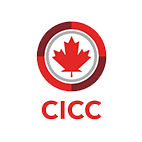Last week, I spoke with an emergency physician from Chicago who’s exploring a move to Canada. She asked, “Is it really easier for US doctors to get licensed here now?” That question is coming up more and more these days.
When I first started researching this, even I was surprised by the changes. Licensing is clearly getting more efficient, but that’s just part of the story. At ELAAR Immigration, we’re seeing a steady rise in inquiries from US-trained doctors.
Beyond the headlines and statistics, the real motivations often come out during one-to-one conversations. Let me share the top reasons why more American doctors are moving to Canada and what it means for you if you’re thinking about it too.
1. Licensing Really Has Become Faster
US-trained physicians certified by the American Board of Family Medicine (ABFM) can pursue certification in Canada without additional exams under certain agreements.
Depending on the province, US-trained physicians may need to obtain a provisional license to practice medicine in their specialty with clinical supervision for 12-18 months. The process typically involves:
- Step 1: Registration through PhysiciansApply.ca, which is the portal of the Medical Council of Canada (MCC) for international medical graduates from the United Kingdom, Ireland, Australia, or the USA.
- Step 2: Application for Medical Registration with a provincial college such as the College of Physicians and Surgeons of British Columbia (CPSBC).
- Step 3: Supervised practice period or examination requirements, depending on your specialty and province.
Provincial Support
I always remind clients: “Canada” isn’t just one system, there are thirteen different licensing bodies, each with its own rules and timelines.
For instance, British Columbia now offers much quicker decisions for US-trained applicants, while Ontario, New Brunswick, and Nova Scotia have adopted similar regulatory changes. In some cases, I’ve seen approvals significantly faster, especially if your paperwork is ready and you meet all the criteria.
Important: Always verify current requirements directly with the provincial medical regulatory authority where you plan to practice. These requirements can change, and what applies to one province may not apply to another.
One pediatrician from Michigan told me recently:
“For the first time in years, I got a clear timeline from a licensing authority. I wasn’t expecting things to move this quickly after hearing so many discouraging stories from the past.”
2. Canada’s Immigration System Prioritizes Healthcare Workers
Canada isn’t just recognizing your medical training; it’s actively prioritizing you for immigration. Through systems like Express Entry, Provincial Nominee Program (PNPs), and Category-Based Selection, healthcare professionals are being invited to apply for permanent residency at record levels. Here are the main benefits for US-trained doctors pursuing Canadian immigration right now.
- Lower competition: You are competing within a smaller pool of healthcare professionals rather than all Express Entry candidates
- Better CRS scores: Healthcare occupation draws typically have lower CRS cut-offs (ranging between 422 and 463 in 2024) compared to general draws (524-549).
- Regular draws: Healthcare draws are expected to continue through at least November 2025, according to the Immigration Levels Plan.
For further information, please refer to the official IRCC website.
Processing Times
In my experience, most medical professionals invited through these streams are landing permanent residency within about six months. You can check the latest IRCC processing times here.
3. Better Take-Home Pay & Lower Risks
It’s no secret that US doctors often earn more in gross salary. While physicians in the US generally have higher incomes, many find that their overall financial picture is more stable in Canada. Lower malpractice premiums (CMPA Fee Structure), less overhead, and public health coverage for their families all add up to a different kind of economic security, especially if you value predictability and work-life balance over maximizing income.
Income Expectations
Most Canadian doctors earn $225,000 to $500,000 CAD (approx. $165,000 to $365,000 USD), depending on specialty and region (source: Canadian Institute for Health Information).
For instance, several clients have shared that not wrestling with insurance companies or unpredictable malpractice costs has lifted a big burden. It’s a “different kind of stress-relief,” as one family doctor from New York put it.
Family doctors in rural areas can receive bonuses and incentives that greatly increase their income. Salaries in Canada vary considerably based on specialty and location. Since these figures change often and differ across provinces, I usually recommend that doctors do the following:
- Research current compensation through provincial medical associations
- Factor in the different practice models (fee-for-service vs. salary)
- Consider rural and underserved area incentives, which can be substantial
Do You Want to Move to Canada as a US-Based Doctor?
Immigrate to Canada with the help of our Licensed Experts.
What Makes Canada Financially Attractive?
- Malpractice Insurance: Generally significantly lower in Canada compared to US premiums.
- Administrative Overhead: The single-payer system typically reduces billing complexity and administrative costs.
- Healthcare Coverage: Universal healthcare for you and your family eliminates personal health insurance premiums.
- Tax Implications: Yes, Canadian tax rates are generally higher, but you need to factor in what you’re no longer paying for (health insurance, higher malpractice premiums, etc.).
4. Safety, Stability, and Quality of Life
Besides professional reasons, many US doctors tell me they’re motivated by safety and quality-of-life considerations. Concerns include workplace violence and dissatisfaction with the broader political climate. Canada’s universal healthcare system offers greater predictability, with a strong emphasis on healthcare workplace safety and a welcoming immigration plan for skilled workers.
One internal medicine specialist from Arizona summed it up:
“I want my kids to feel safe and have access to good public services. Canada checks a lot of our boxes.”
Policy Stability
Canada is widely seen as offering more political stability, especially when it comes to healthcare policy. One factor that comes up frequently in my consultations is the relative stability of Canada’s healthcare policy framework.
This doesn’t mean the system is without its complexities or ongoing reforms, but many physicians find the policy environment less volatile for long-term practice planning.
Safety at Work
Several clients have mentioned concerns about workplace safety in healthcare settings. While safety challenges exist in healthcare environments globally, some physicians are exploring practice opportunities in settings they perceive as having different safety profiles.
Family and Community Factors
For physicians with families and community environment often plays a big role in location decisions. Canada’s reputation for social stability and community-oriented culture appeals to many healthcare professionals.
Mental Health Benefits
Many physicians are dealing with high levels of professional stress and burnout. While changing countries will not automatically solve these challenges, some doctors find that different healthcare system structures and practice environments better align with their professional values and personal well-being goals.
5. Less Corporate Pressure
The Canadian system isn’t perfect as there are resource shortages and wait times. But many of my clients say that working here comes with less corporate oversight and fewer relentless productivity targets.
System Differences
The Canadian healthcare system operates quite differently from the US model:
- Public funding reduces pressure for revenue generation
- Different patient flow and treatment protocols
- Varied administrative requirements by province
Professional Satisfaction Variables
I have worked with doctors who found greater professional satisfaction in Canada’s system, and others who missed aspects of US practice. Your experience will depend heavily on:
- Your specialty
- The specific province and healthcare system you join
- Your personal practice preferences
- Your patient population expectations
A family physician I worked with from Texas told me:
“In the US, I felt constant pressure from insurance companies and hospital boards. Here, even with system challenges, I feel like I get to focus on the patient more and I actually get time with my family.”
What You Should Know Before Making This Decision
Before making a move to Canada as a US-based doctor, you must know these factors:
It Is Not a Quick Fix
Despite streamlined processes, transitioning to practice medicine in Canada typically takes 12-24 months, even under the best circumstances. You will need:
- Time for credentialing and licensing
- Potential supervised practice periods
- Immigration processing time
- Adjustment to different practice patterns
Research Is Essential
Before considering this move, I recommend:
- Connect with the provincial medical regulatory authority in your target province
- Speak with US doctors currently practicing in Canada in your specialty
- Understand the immigration requirements specific to your situation
- Research the local healthcare system where you plan to practice
Consider Your Personal Factors
The doctors who make successful transitions typically have thought through:
- Family considerations and lifestyle preferences
- Long-term career goals
- Financial planning for both countries
- Cultural and social adaptations
Need help?
Navigating the complexities of immigration can be challenging. That’s where professional advice comes in. Keshav Sharma, a licensed expert and Regulated Canadian Immigration Consultant, leads a team of seasoned professionals handling cases like yours. Our team is equipped with the knowledge and experience to guide you through every step of the process. Don’t leave your immigration journey to chance. You can contact our experts today to get started on your Canada visa application.
You may also like: Healthcare Occupations for Express Entry: Detailed List










